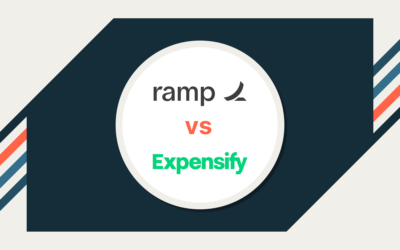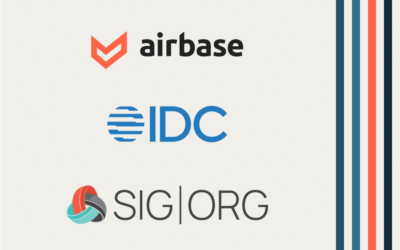What you are worth to the market is not only a matter of your skills, professional qualifications, and experience, but also where you apply those attributes. Variations in salaries from city to city are as high as 60% for a given position. Now, however, as remote working dominates the landscape, many professionals are reconsidering where they want to live. As a result, some companies are making cost-of-living adjustments to salaries for people who relocate to lower-cost areas.
The cost-of-living differential, however, is not the only factor behind the difference in salaries from location to location; the market pays higher in some regions of the country for quality finance professionals where qualified talent is more scarce. Regardless of where you do your job, you’ll want to know what you are worth and push to get fully compensated for the value you bring to a company. A Glassdoor survey found that salary negotiations are becoming more common, with about 60% of survey respondents reporting that they negotiated the salary for their current job. For about 17% of those employees, the talks resulted in a higher salary.
For a positive outcome to salary negotiations, knowledge is power. Clearly, you need reliable information before you start. Before any salary negotiation, research the following:
- What is the average salary for your career?
- How much does it vary from region to region?
- How is the required education reflected in the salary? If you have more qualifications than typically required, you may be warranted in asking for a higher salary.
- What skills are in demand? Employers are often more open to negotiations if they’re having difficulties finding the right person for an essential position.
How can you get this information? Your colleagues may not be forthcoming about how much they earn to give you a point of comparison. A comprehensive study by the National Bureau of Economic Research looked at the taboos inherent in salary discussions and found that 89% of workers are uncomfortable asking a co-worker how much money they make. If you fall into this category, we share some guidelines on salaries for you below.
Note: The salary statistics below come from the Corporate Accounting section of Robert Half’s Accounting & Finance 2022 Salary Guide. These stats represent salary data from across the country. The starting salaries in San Francisco, for example, are, on average, about 41% higher than the national median. And in Duluth, they’re about 20% less.
CFO positions.
Salaries.
- 25th percentile: $127,750
- 50th percentile: $214,500
- 95th percentile: $255,000
The Bureau of Labor Statistics’ Occupational Employment Statistics (OES) guide includes CFOs in the broader category of Chief Executives. The OES lists the top-paying states for that group as the District of Columbia, Hawaii, and Washington.
Job outlook.
The Bureau of Labor Statistics’ Occupational Outlook Handbook (OOH) states that the number of job opportunities in the C-Suite category is expected to grow about 8% between 2020 and 2030. Some of these openings will be due to people retiring and leaving the labor force. The Robert Half Salary Guide notes that hiring trends for CFOs center around the need for process automation and the ability to develop cost-effective financial systems. We expect that trend to continue, as research demonstrates that companies who adopt new and innovative systems are experiencing more revenue growth.
Typical education.
A study by managerial consulting firm Russell Reynolds Associates found that 62% of Fortune-100 CFOs have advanced degrees. But that doesn’t have to hold back aspiring CFOs without that amount of education. Airbase’s Path to Becoming a CFO speaker series features in-depth advice from leading CFOs and other top finance executives. One common theme from this diverse and exceptionally well-qualified group is that there is no set educational path to a career as a leading CFO. Instead, it often comes down to a mindset that is inquisitive and collaborative.
Management positions.
Median salaries.
- Vice-President of Finance: $192,750
- Corporate Controller: $188,250
- Controller: $129,000
- Director of Accounting: $152,000
The OES lists the top-paying states for financial managers, a category that includes controllers and other management positions, as being New York, Delaware, and New Jersey.
Job Outlook.
According to the OOH, the job outlook for financial managers is expected to be strong, with the number of job opportunities increasing by 17% from 2020 through 2030. Employment for financial managers in professional, scientific, and technical industries is one of the brightest industry outlooks.
Education.
Controller and other financial management positions typically require at least a bachelor’s degree, with many employers looking for a master’s degree, such as an MBA, or certification as a public accountant. Certification as a Certified Public Accountant (CPA) is conducted through each state’s board of accountancy and requires passing a four-part exam administered by the American Institute of Certified Public Accountants (AICPA), in addition to other requirements as determined by the state. Lifelong learning is also essential for advancement in financial management positions. CPAs, for example, must stay current by meeting continuing professional education (CPE) requirements through ongoing classes, conferences, and webinars.
Although most sources of salary information don’t distinguish between the earnings potential associated with each of the education options, some analysts have found that accounting professionals with a CPA earn, on average, about 10% more than those without a CPA certification. It’s difficult to determine the potential salary increase associated with an MBA, since the quality and reputation of MBA programs vary widely. However, it’s worth noting that the National Association of Colleges and Employers reports that the average starting salary for 2020 bachelor’s of accounting graduates is $57,734, while the average salary for 2020 MBA graduates is $79,043.
Accounting and auditing positions.
Median salaries.
- Senior Internal Auditor: $93,500
- Senior Accountant: $84,750
- Auditor with one to three years of experience: $79,750
- Accountant with one to three years of experience: $70,000
- Accountant with less than one year of experience: $53,000
- Auditor with less than one year of experience: $49,759
The OES says that the top paying states for accountants and auditors are the District of Columbia, New York, and New Jersey.
Education.
Most accountant and auditor positions require at least a bachelor’s degree in accounting or a subject like business administration. Accountants and auditors earn different types of certifications to help them advance their careers and specialize in different aspects of accounting. For example, auditing certifications include Certified Financial Services Auditor (CFSA) and Certified Internal Auditor (CIA) certifications. As with financial management positions, continued education is essential.
Job outlook.
According to the OOH, job growth for accountants is expected to be about average through 2030. The OOH predicts that automation will not impact the number of job opportunities for accountants. Instead, it will shift so that professionals in this field can play a more strategic and advisory role. From 2020 through 2030, the highest number of new jobs will be in the professional, scientific, and technical sectors fields.
Knowledge is power.
As you build your career in finance, you may be interested in reading our 21-Century CFO ebook, with quotes from noted financial professionals, like Mark Hawkins, President and CFO at Salesforce, Alfred Lin, Senior Partner at Sequoia Capital, and Kelly Battles, former CFO of Quora. Whether you decide to remain in your current location or move to a quiet mountain community and work remotely, knowing your value is your best negotiating tool to get top dollar for your talents.
 Jira Integration – Streamline Your Workflows
Jira Integration – Streamline Your Workflows  Ironclad Integration – Simplify Legal Operations
Ironclad Integration – Simplify Legal Operations  Asana
Asana 




